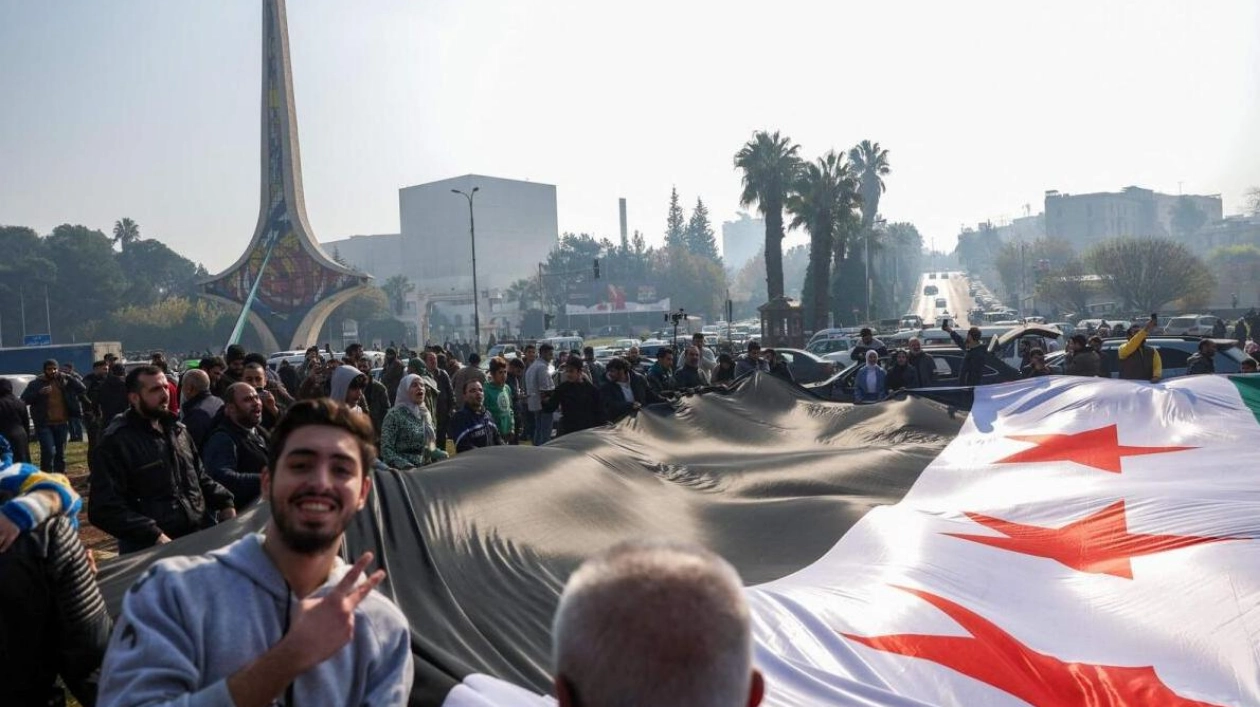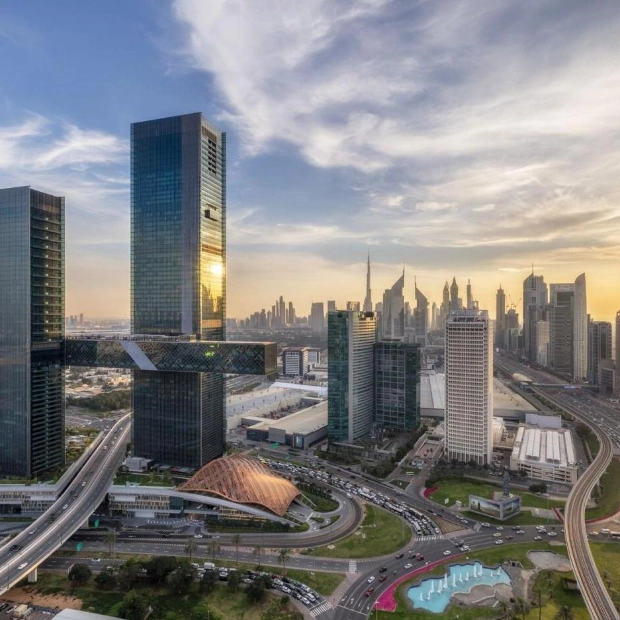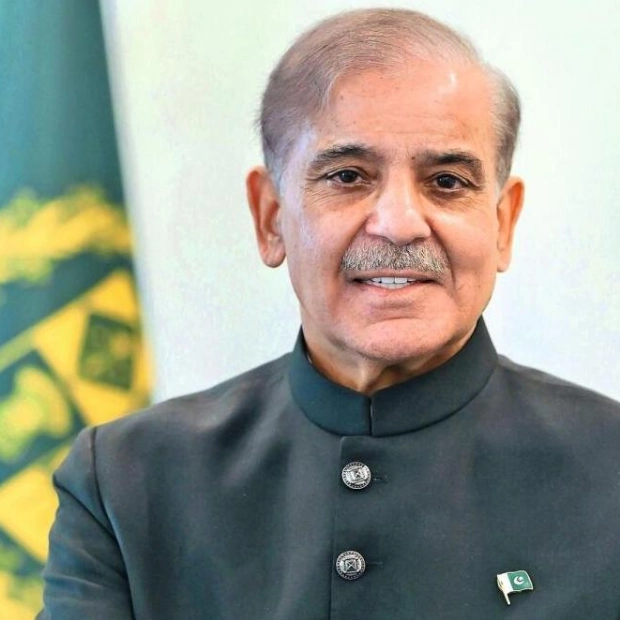People gathered at Umayyad Square in Damascus on December 9, 2024, holding a large Syrian opposition flag. Photo: AFP
The sudden overthrow of President Bashar Al Assad left Syrians, regional nations, and global powers anxious on Tuesday about the future as the rebel alliance began its initial steps in a government transition. The United Nations Security Council convened behind closed doors on Monday, with diplomats expressing shock at the rapid pace of Assad's downfall over 12 days, following a 13-year civil war that had been in a stalemate for years.
"Everyone was taken by surprise, everyone, including the members of the council. So we have to wait and see and watch ... and evaluate how the situation will develop," Russian U.N. Ambassador Vassily Nebenzia told reporters after the meeting. Russia had played a significant role in supporting Assad's government and aiding its fight against the rebels. Assad fled Damascus for Moscow on Sunday, marking the end of over 50 years of his family's brutal rule.
With celebrations continuing in Damascus, Assad's Prime Minister, Mohammed Jalali, agreed on Monday to transfer power to the rebel-led Salvation Government, an administration based in rebel-held territory in northwest Syria. The main rebel commander, Ahmed Al Sharaa, also known as Abu Mohammed Al Golani, met with Jalali and Vice President Faisal Mekdad to discuss the transitional government, according to a source familiar with the discussions. Jalali indicated that the handover could take several days to complete.
Al Jazeera reported that the transitional authority would be headed by Mohamed Al Bashir, who currently leads the Salvation Government. The swift advance of the militia alliance led by Hayat Tahrir Al Sham (HTS), a former Al Qaeda affiliate, marked a significant turning point for the Middle East. The civil war, which began in 2011, resulted in hundreds of thousands of deaths, a massive refugee crisis, and widespread destruction of cities and the economy.
However, the rebel alliance has not yet outlined its plans for Syria's future, and there is no established framework for such a transition in the region. Oil prices rose more than 1% on Monday, partly due to concerns that instability in Syria could escalate regional tensions, analysts noted. "This is an incredible moment for the Syrian people," Deputy U.S. Ambassador to the U.N. Robert Wood said in New York. "Now we're focused on seeing where the situation goes. Can there be a governing authority in Syria that respects the rights and dignities of the Syrian population?"
The U.S. is exploring ways to engage with Syrian rebel groups and is reaching out to regional partners like Turkey to initiate informal diplomacy, according to Washington. Qatari diplomats spoke with HTS on Monday, as regional states sought to establish contact with the group.
Some insurgent fighters in Damascus expressed hope for a civilian administration to take control of the country. "We want the state and security forces to be in charge," said Firdous Omar, a fighter planning to return to farming in Idlib province. Golani has pledged to rebuild Syria, and HTS has worked to improve its image to gain the trust of foreign nations and minority groups within Syria.
However, with HTS designated as a terrorist organization by many states and the U.N., its legitimacy as a governing body remains uncertain. "Syrians are looking forward to establishing a state of freedom, equality, rule of law, democracy, and we will join efforts to rebuild our country, to rebuild what was destroyed, and to rebuild the future, better future of Syria," Syria's U.N. Ambassador Koussay Aldahhak told reporters.
There were early signs of a return to order. Syria's banks are set to reopen on Tuesday, and the oil ministry called on all employees in the sector to report to work, assuring their safety would be protected. One of the many challenges facing Syria is Israel's seizure of a buffer zone in the country's south, a move condemned by Egypt, Qatar, and Saudi Arabia. Saudi Arabia stated that the action would "ruin Syria's chances of restoring security."
Israel defended its actions, stating that its airstrikes would continue for days but that it was not intervening in Syria's conflict. It described its measures as "limited and temporary" to protect its security. German Chancellor Olaf Scholz and French President Emmanuel Macron discussed the possibility of cooperating with Syria's new leaders, agreeing to do so based on fundamental human rights and the protection of ethnic and religious minorities.
They emphasized the importance of preserving Syria's territorial integrity and sovereignty. The two leaders also agreed to strengthen the European Union's commitment to Syria, particularly by supporting inclusive political processes in coordination with Middle East partners. Western officials have welcomed the end of Assad's rule but are concerned about potential unrest similar to what occurred in Libya after the overthrow of Moamer Kadhafi.
Source link: https://www.khaleejtimes.com






